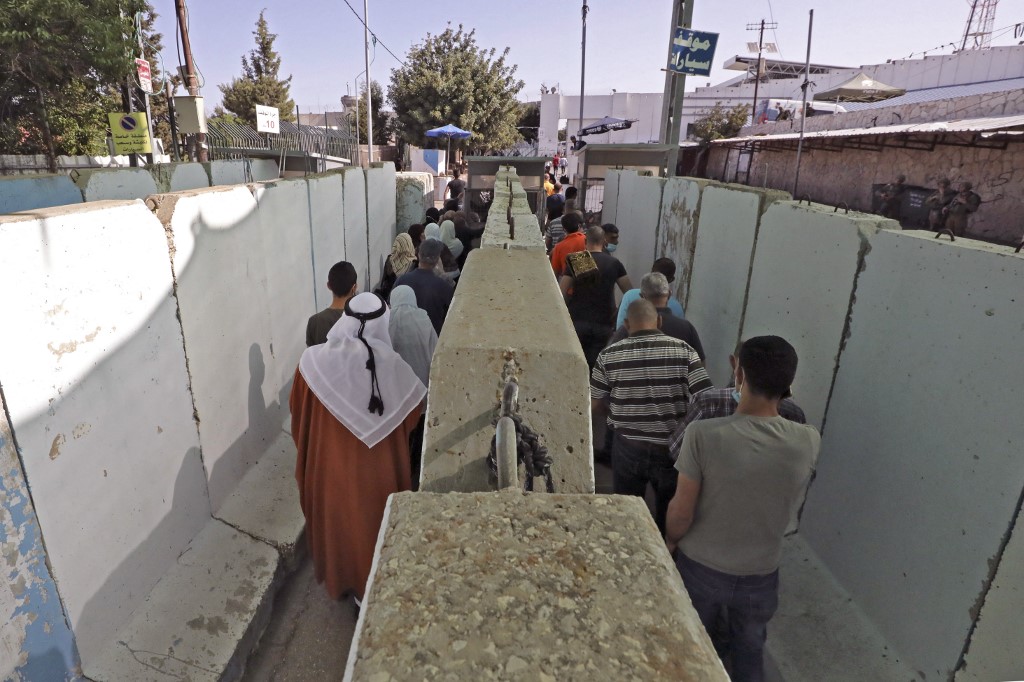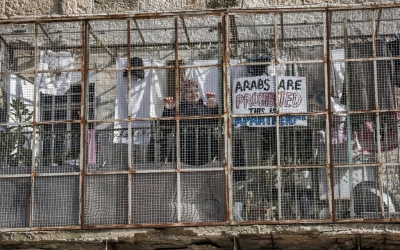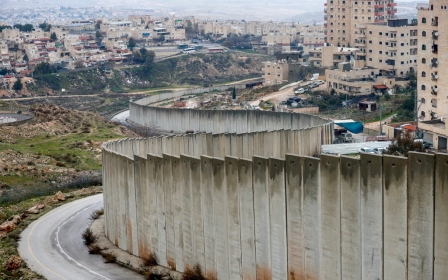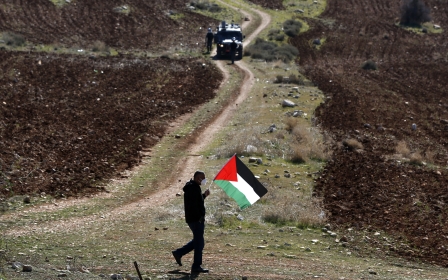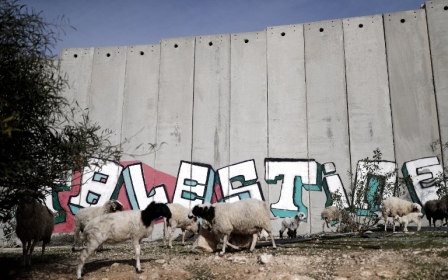Israel has long been an apartheid state. Admitting it now is too little, too late
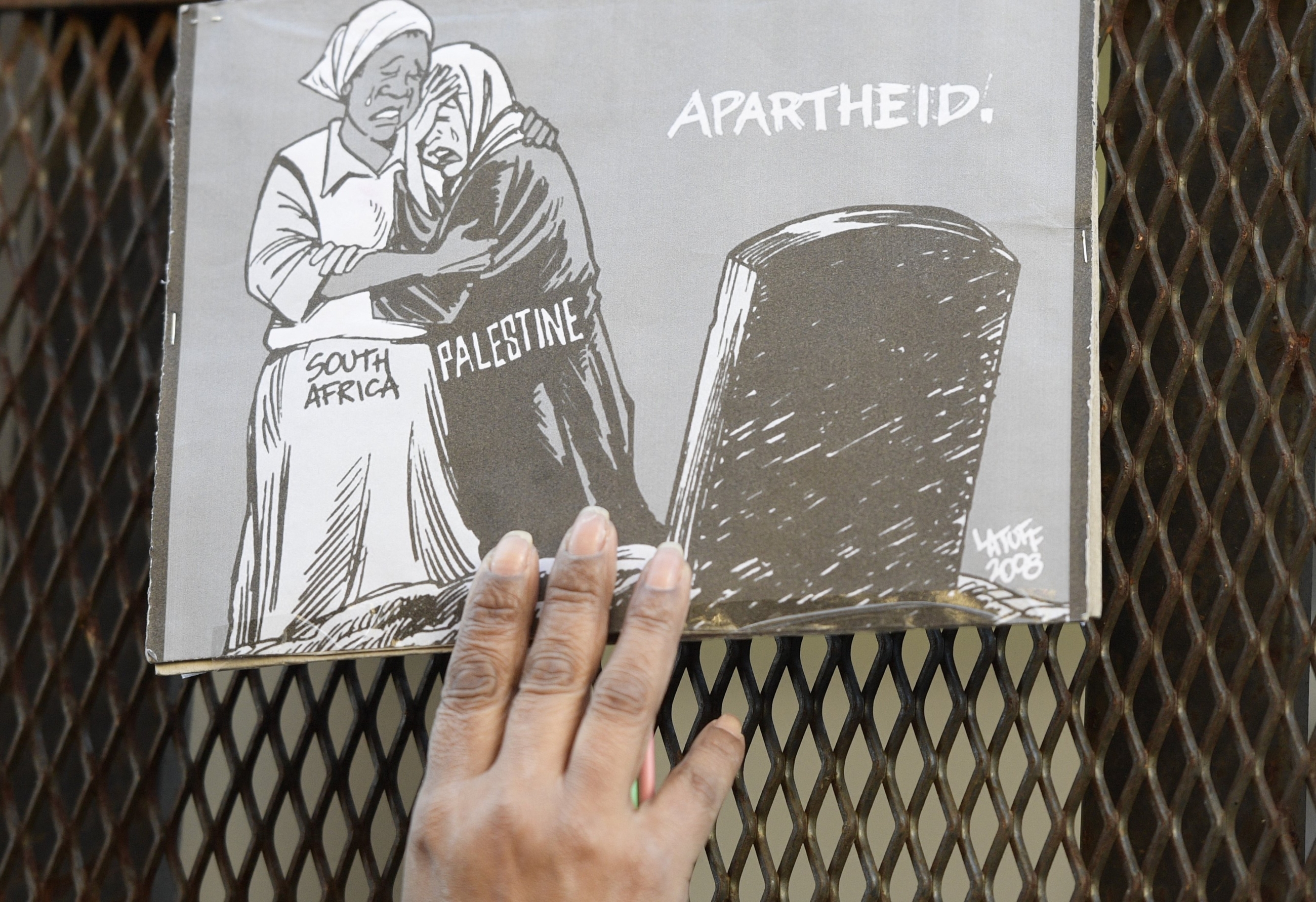
In the early 1960s, while recently decolonised countries in Asia and Africa mounted a vigorous attack against South African apartheid, seeking to isolate the white supremacist settler-colonial regime, white European liberals and socialists were celebrating the achievement of Jewish supremacism in Israel.
Through the Council of the Socialist International, white European socialists met in Israel in 1960 and endorsed national self-determination for colonised peoples. They declared from the bosom of the racist Jewish settler-colony in Haifa, without a whiff of irony, that for "multi-racial communities … no solution is possible if it is based on any form of racial discrimination, either by the minority over the majority or vice versa”.
At the time, Israel had caged what remained of the indigenous Palestinian population, the majority of whom it had expelled during the 1948 war, in their remaining towns and villages under draconian martial law and Emergency Regulations, with racist pass laws to restrict them to their reserves, while confiscating their land and property and transferring it for the exclusive use of Jews.
Neither Israel's Jewish supremacy nor its apartheid crimes began with the nation state law, which simply added more legal instruments to the country's decades-old institutional and colonial racism
Analogising Israeli Jewish supremacy and settler-colonialism in Palestine to South African apartheid had become standard practice by Asians and Africans at least since the 1960s.
Former Palestinian leader Yasser Arafat made the comparison explicit at his 1974 inaugural speech at the United Nations in New York: “The roots of the Palestinian question reach back into the closing years of the nineteenth century; in other words, to that period we call the era of colonialism and settlement as we know it today … This period persists into the present. Marked evidence of its totally reprehensible presence can be readily perceived in the racism practised both in South Africa and in Palestine.”
New MEE newsletter: Jerusalem Dispatch
Sign up to get the latest insights and analysis on Israel-Palestine, alongside Turkey Unpacked and other MEE newsletters
When the UN General Assembly equated Zionism with racism in 1975 in Resolution 3379, the international community only declared what everyone, except white European and American imperialists - liberals and conservatives alike - knew to be true: Zionism, the UN proclaimed, was “a form of racism and racial discrimination”, and they grouped it with the settler-colonial racism of South Africa and Rhodesia (later Zimbabwe). The vast majority of the 35 “nay” voters were European settler-colonies in the Americas and Oceania, and European colonial countries.
South African apartheid analogy
In academic and history books, the analogy has been drawn regularly. Palestinian scholar Fayez Sayegh identified Zionist racism as akin to apartheid South Africa in his 1965 book Zionist Colonialism in Palestine. British journalist David Hirst wrote of “apartheid Israeli-style” in his 1977 book The Gun and the Olive Branch. Edward Said described Israeli Jewish racist and colonial practices against Palestinians as “de facto apartheid” throughout his 1979 classic The Question of Palestine.
By the 1980s, except for white European and American liberal and conservative racists committed to Jewish settler-colonialism, the apartheid analogy was everywhere. After the fall of apartheid in South Africa in 1994, anti-apartheid leaders, from Nelson Mandela to Desmond Tutu, expressed horror at Israeli policies, and several African National Congress visitors to Israeli-occupied Palestine described Israel’s treatment of Palestinians as “worse than apartheid”.
None of this moved the majority of white European and American liberal apologists for Israel, as the judgment of Asians and Africans remained subjective and of no consequence to them, with objectivity remaining an exclusive possession of white people. As Frantz Fanon averred in the early 1960s: “For the native, objectivity is always directed against him.”
By the dawn of the 21st century, white European and US liberals and conservatives were jumping to defend Israel against this “hideous” analogy. In 2001, at the World Conference Against Racism in Durban, South Africa, the coopted white establishment African American then-Secretary of State Colin Powell led a walkout of the US delegation in protest over delegates calling Israel an apartheid state, which he unashamedly described as “hateful language”.
When US-based faculty and students demanded in 2002 that universities divest from companies that supported Israel’s occupation and apartheid policies, Abraham Foxman, then-head of the Anti-Defamation League, called the analogy to South African apartheid “hideous”. When faculty and students at Columbia University, including myself, made similar demands, the school’s president called the reference to Israeli apartheid “both grotesque and offensive”.
Belated decision
Palestinian human rights groups and the boycott, divestment and sanctions (BDS) movement have been calling Israel an apartheid state for more than a decade and a half, and students in solidarity with Palestinians in the US, Canada and Europe started Israel Apartheid Week in 2005 to expose Israel’s apartheid policies on university campuses. They are often harassed and harangued by apologists for Israel’s racism, both students and university administrators.
Only this past January, almost 73 years since the establishment of Israel, did the Israeli human rights group B’Tselem issue a report identifying the Israeli regime as one of “Jewish supremacy” and Israel as an apartheid state (another Israeli human rights group, Yesh Din, issued a report last year describing Israel’s rule in the occupied territories as “apartheid”).
The B’Tselem report was not based on some new reality that suddenly transformed Israel into an apartheid, Jewish supremacist state, but rather on the group’s belated decision to acknowledge that “the terms we have used in recent years to describe the situation … are no longer adequate”. Thus, the terms that Palestinians and mostly non-white others have recognised for decades - “apartheid” and “Jewish supremacy” - were suddenly the only appropriate terms for B’Tselem to use to describe the Israeli regime.
Of course, Israeli racism has not abated in recent years, with Israel’s 2018 nation-state law being the most recent of its dozens of racist laws enacted since 1948. But neither Israel’s Jewish supremacy nor its apartheid crimes began with that law, which simply added more legal instruments to the country’s decades-old institutional and colonial racism.
Now that a respected Ashkenazi-Jewish Israeli organisation had given its blessing to the use of these terms, the white-dominated US-based organisation Human Rights Watch (HRW) felt it was time that it, too, identified Israeli apartheid. Like B’Tselem, HRW did not base its recent decision to accuse Israel of “crimes against humanity of apartheid and persecution” on some recent Israeli policy, but rather acknowledged that this is what Israel has always been.
Its report explicitly states: “Israel has maintained military rule over some portion of the Palestinian population for all but six months of its 73-year history. It did so over the vast majority of Palestinians inside Israel from 1948 and until 1966. From 1967 until the present, it has militarily ruled over Palestinians in the OPT, excluding East Jerusalem. By contrast, it has since its founding governed all Jewish Israelis, including settlers in the OPT since the beginning of the occupation in 1967, under its more rights-respecting civil law.”
What HRW says is the novelty in its report is that its charge that Israel commits apartheid and persecution is based on a “legal analysis” in line with international law definitions. HRW is careful to clarify that it is not comparing Israel to apartheid South Africa or charging Israel with being an “apartheid state”, as this concept is “not defined in international law”.
International law violations
In fact, the Palestinian group Adalah has long documented dozens of discriminatory Israeli laws that privilege Jews, operative since the establishment of the settler colony in 1948. Indeed, these laws have always been listed in Palestinian scholarship on the subject. Sabri Jiryis’s 1970s classic The Arabs in Israel explained the discriminatory and racist effectiveness of these laws in subjecting Palestinians to Jewish supremacy.
Israel’s numerous violations of international law have been a constant refrain at the UN since the country’s establishment in 1948, with many General Assembly and Security Council resolutions condemning it for the very same practices that groups such as HRW and B’Tselem now recognise as crimes against humanity.
These groups failed to acknowledge their own racism and complicity with Israeli apartheid over the decades, when they insisted on being blind to Israeli apartheid while it was in plain sight
This is not the first time that the “international community” (read: white western countries and their liberal intelligentsia) has insisted on waiting for Ashkenazi Israeli Jews to confirm what Palestinians had been saying all along before the claim was believed, let alone endorsed.
A prime example is the Zionist expulsion of 85 percent of the Palestinian people from their homeland in the 1947-48 period, denied by Israel and its apologists in the West for decades despite the huge body of evidence presented by the international press, the UN, the Red Cross and Palestinian scholars since 1948.
Only when in the 1980s, an Ashkenazi Israeli Zionist historian referenced official Israeli documents that spoke of the scale of the expulsion and massacres, did the pro-Israel western intelligentsia reluctantly relent years later - and even then, only partially, replacing its claim that the refugees “fled” on their own, to the claim that refugees “fled or were driven out”, to soften the impact of Israel’s crimes.
What B’Tselem and HRW pronounced in their recent reports was only news to liberal Israeli Jews and the liberal white US and European intelligentsia whose commitment to Jewish settler-colonialism in Palestine has never wavered.
Such pronouncements, however, should not provoke appreciation or acknowledgment by Palestinians and their supporters; rather, they must elicit condemnation of these racist Israeli and western human rights groups who, in their recent reports, failed to acknowledge their own racism and complicity with Israeli apartheid over the decades, when they insisted on being blind to Israeli apartheid while it was in plain sight.
The views expressed in this article belong to the author and do not necessarily reflect the editorial policy of Middle East Eye.
Middle East Eye delivers independent and unrivalled coverage and analysis of the Middle East, North Africa and beyond. To learn more about republishing this content and the associated fees, please fill out this form. More about MEE can be found here.



